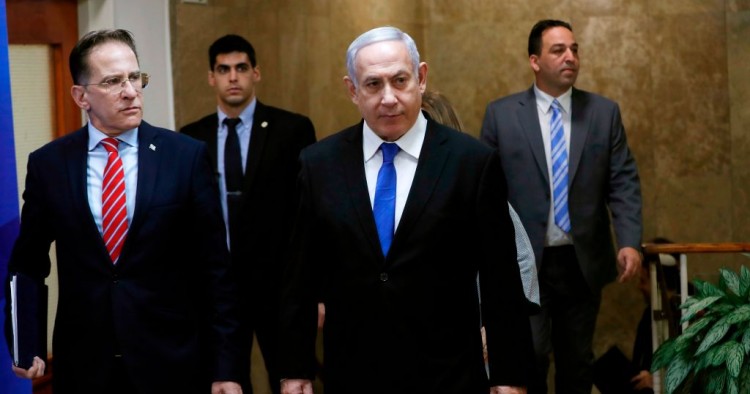Israel spent the entire year absorbed in a frustrating series of inconclusive elections, with no party able to put together a viable governing coalition. It now faces a third election on March 2, 2020. Thus, the country functioned the entire year under a caretaker government unable to undertake new initiatives.
Interestingly, the Israeli-Palestinian conflict largely took a break as well, with fewer violent incidents on Israel’s borders or within the country. Hamas and the Palestinian Authority both recognize that, in the absence of a fully functioning government and with use of force by Israel a vote-getter for politicians, neither political nor military initiatives make much sense. Just before the second election, Prime Minister Benjamin Netanyahu announced his intention to annex parts of the West Bank, followed by a U.S. statement purporting to recognize Israel’s right to do so. Whether this will happen obviously depends on the composition of the government eventually to be formed.
The main — perhaps only — issue in Israeli politics now is the future of Netanyahu, who by March will have served an unprecedented 14 years as Israel’s premier, 11 of them consecutively. He is acutely anxious to retain his position, not only for the usual reasons, but also because he was recently indicted on counts of fraud, bribery, and breach of trust. He had hoped, in a new government, to pass a law immunizing himself from prosecution while in office, but the possibility of doing so has been receding. His main challenger, Benny Gantz of the Blue-White party, is receptive to a coalition of both major parties, but not one in which Netanyahu would continue as prime minister.
Blue-White is a newly-formed party led by three former Israel Defense Forces chiefs of staff. Its ideology is eclectic, ranging from mainstream rightist to fairly liberal, united solely by the insistence that Netanyahu lekh la’baita (“go home”). Its rise has virtually shattered Israel’s traditional center-left Labor Party, reduced to a pitiful six Knesset seats.
The first two elections — in April and September — produced nearly identical results, but recent polls show Blue-White slowly gaining, and a challenger to Netanyahu as party leader has now emerged from within Likud. Voters and politicians alike are determined that this election must provide a government.
With so much emphasis on politics, actual policy has gotten lost. Most Israelis have long since given up on ending the Israeli-Palestinian conflict, hoping for truces rather than solutions. They are more concerned with the perceived threat of Iran and its allies, as well as Israel’s frequent, though generally unacknowledged, bombing attacks in Syria against Iranian forces aiding Bashar al-Assad.
Thus, Israel ends the year with a continuing question mark over its government. The policies any future government will follow are equally in doubt, though the likelihood of any major changes of direction is low.
Paul Scham is a scholar at MEI and the executive director of the Gildenhorn Institute for Israel Studies at the University of Maryland, where he teaches courses on the history of the Israeli-Palestinian conflict.
Photo by RONEN ZVULUN/POOL/AFP via Getty Images
The Middle East Institute (MEI) is an independent, non-partisan, non-for-profit, educational organization. It does not engage in advocacy and its scholars’ opinions are their own. MEI welcomes financial donations, but retains sole editorial control over its work and its publications reflect only the authors’ views. For a listing of MEI donors, please click here.













